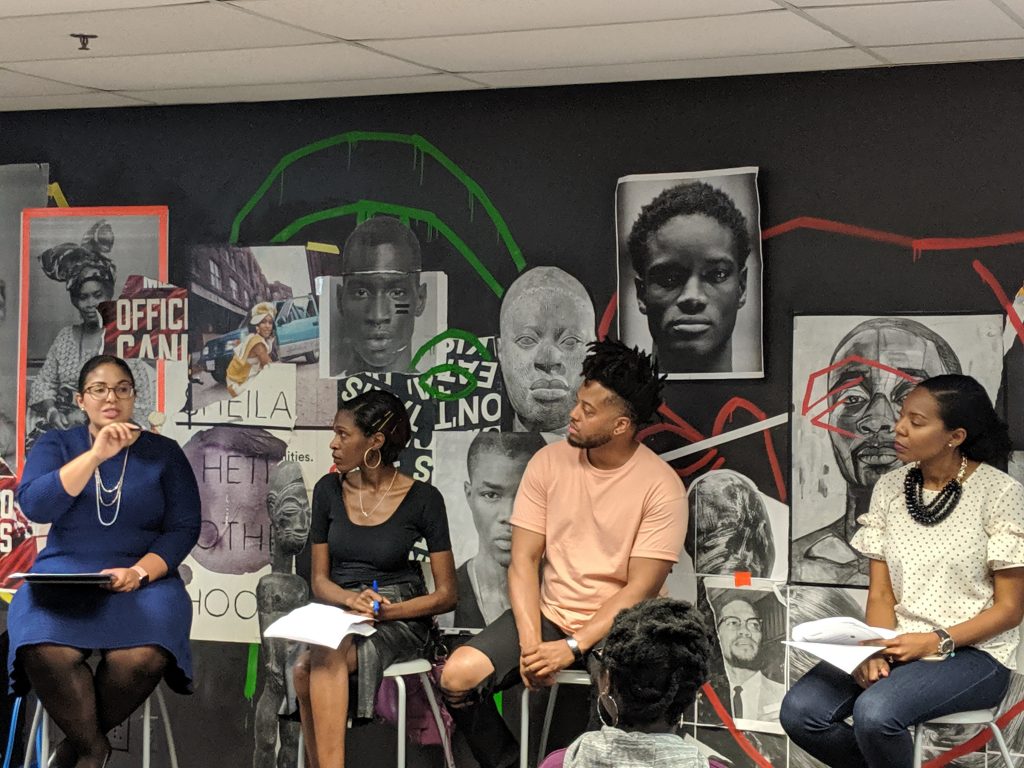Do you know your Intellectual Property Rights?
By Alica Hall, p
Posted on May 11, 2019
Intellectual property rights? The official term may come as a first in your mind, however as a creative, whether you are a performer, visual artist, writer, all of the above, or anything in between, there is no doubt that you have come in contact with the basis of this idea.
Simply put, intellectual property rights (IP) refers to the rights that one lawfully has over the creations of their minds. Regardless of the criticism belonging to those who claim that our culture has reached a point in which there has been a loss of originality, and all that there is left to turn to today is recycling of the past. Many would also agree that there is, in fact, no better time than now for innovation.
As long as the world keeps turning, there are more people navigating life, and experiences to be had, there will also be new approaches and ways of thinking, as well as most notably, distinct ways of creating. Especially when living and working in the digital world which can include social media, and it’s allowing for the mass distribution across borders, it is important to make sure that you don’t get lost in the mix, and others do not profit from what is rightfully yours.
An example of how IP is instilled from a young age can be found in the way that young children are taught to write their name at the bottom of fridge drawings. The goal of this workshop was to bring attention to the importance of IP. The bottom line is unprotected work can become manipulated, and in turn, your work may lose its credibility.
Thinking strategically and critically about how to protect one’s work to the absolute best of their ability may come as a daunting task, with confusion over where one should even begin. Thinking and researching about the legal ramifications of contracts, trademarks and non-disclosure agreements can also be boring and time-consuming.
Creating accessible resources for Black artists was the goal of the IP workshop series. According to Sommer Blackman, a Toronto-based lawyer and the organizer of our Intellectual Property Rights (IP) sessions, these workshops started an important dialogue in the Black community, so we can better appreciate the advantages and necessity of protecting the works we create. Sommer's goal is to grow these sessions into larger IP-education programming initiatives in Canada.
Intellectual Property - Creative Rights Workshop
[caption id="attachment_814" align="aligncenter" width="640"] Need to add a description[/caption]
Need to add a description[/caption]
Our panellists included lawyers, Tasha DeFreitas and Raquiya Austin and Mike Rousseau a creative and founder of AUX GOD. The discussion about trademarks was a key point of the workshop. Tasha reiterated how trademarks identify the source of products and services. It is important in building brand awareness as well as brand reputation. Trademarks can protect a name, slogan, design or sound. Once you've created it, you should register it right away.
One of our workshop’s panelists, Raquiya spoke about her beliefs regarding the need for artists to understand there is a business side to being creative. It can be assured that it takes time but everything is worth it. Raquiya stresses, "Get your business affairs in order. You have to be business-minded. That takes structure and time."
The reason for this is that while Intellectual property rights are creative rights it is also prudent for creatives to take responsibility for getting a handle on rules and regulations that are meant to protect an artist's craft. Tasha added, "It is never too early to think strategy. Don't think about protection last. Think early on, What's my budget? What kind of protection do I really need."
"I believe IP should be understood by everyone interested, and not knowledge reserved for only those in the legal profession.”
Four key takeaways:
- Copyright covers rights to reproduce, publish, perform, communicate or present work
- Copyright exists as soon as the work is created in fixed form. When creating work for an employer the ownership belongs to the employer
- A trademark's soul purpose is to distinguish your products/services from those provided by others
- Avoid trademarks that are similar to others; for example coined words that already have strong associations ex: Apple
"You can't just let anyone use your mark or else it becomes generic. Remember it's a source identifier. If you knowingly let multiple sources use a similar mark, then when you try to go an insert your rights, it'll become generic."
The dos and don'ts of trademarks
Dos
- Keep records of advertising expenditures, sales success and media coverage of the products/services with the mark
- Display the mark in a visually distinctive manner
- Be vigilant - monitor the use of your trademarks
- Use your mark consistently
Don't
- Do not manipulate the logo once its been registered
- Avoid changing the colours
- Do not create variations or misspellings of the trademark
- Ditch punctuation in a trademarked phrase unless the phrase is registered with it
For more information on the Intellectual Property and creative industry, resources click here.
Copyright © 2026 Nia Centre for the Arts All Right Reserved.